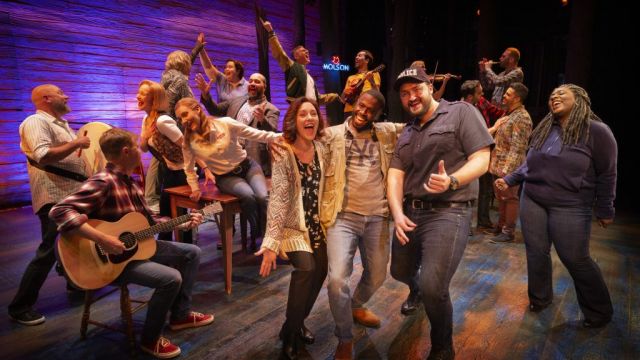Come From Away
‘Welcome to the friends who have come from away’ sing the twelve-strong cast of this terrific musical that has finally made its way to South Australia. Adelaide is the destination of the latest leg of its Australian tour, that began in 2019, only to be interrupted for a couple of years through the Covid pandemic. That first line of the opening song is the central tenet to the true story of how a small town in Newfoundland took on seven thousand stranded passengers following the terrorist attacks on the US in September 2001. When the US airspace was suddenly closed, planes that were in the air had to find somewhere to land – and what used to be a first or last stop for planes flying across the Atlantic Ocean, the massive but now mothballed airport at Gander was one of the few places that could take the large-capacity aircraft.
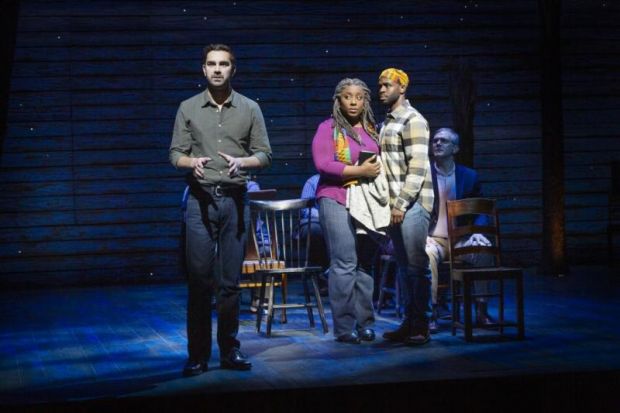
The hundred-minute performance is carried spectacularly by the ensemble, who play every part from the Gander locals to travellers from each corner of the world. They juggle this seemingly without effort, instantly switching characters, accents, and physicality. It wouldn’t be fair to pick out anyone from that group (except to call out Adelaide’s own Phillip Lowe, who plays Nick and many others) – they work incredibly well together, and they all take turns in being in the spotlight.
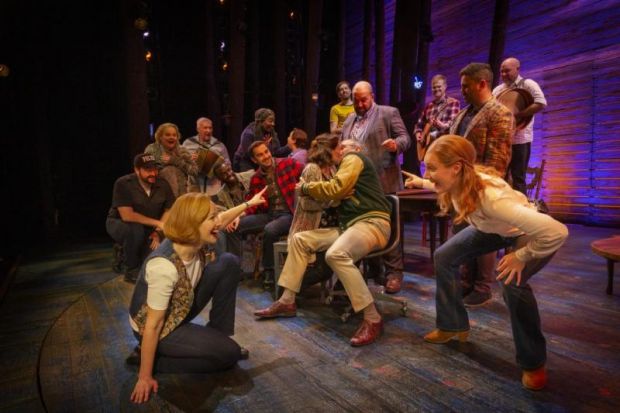
There are sketches of conversations that dart around the community and on the planes themselves, showing the differences between the worlds inside and outside of Gander. One of those worlds is self-centred, fast-moving; the other, giving everything for others, giving time to appreciate what’s happening – I don’t think it’s a spoiler to say that Newfoundland is portrayed as the latter. The nine thousand inhabitants of this small town use the phrase ‘come from away’ to describe a person who has travelled there from somewhere else in the world, but it is also an inclusive definition of Gander’s attitude to its unexpected visitors.
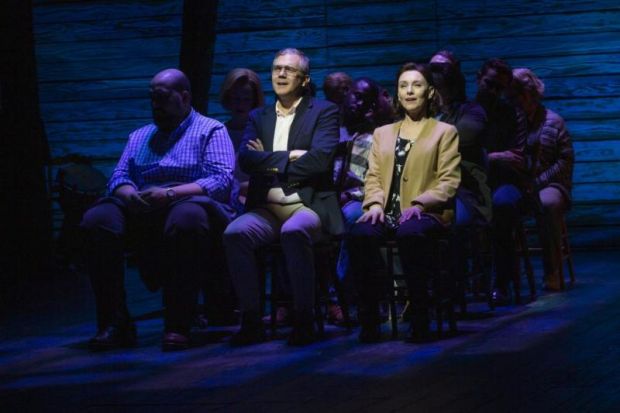
Predominantly, this is a musical, and the live band playing the Irish-Canadian music is an integral part of the performance – sitting right on stage for the entire show, mostly in the wings, but coming forward for a brilliant bar scene. Led by Michael Tyack AM, the group is tight, note and beat-perfect, and make it impossible not to tap your feet in the aisles.
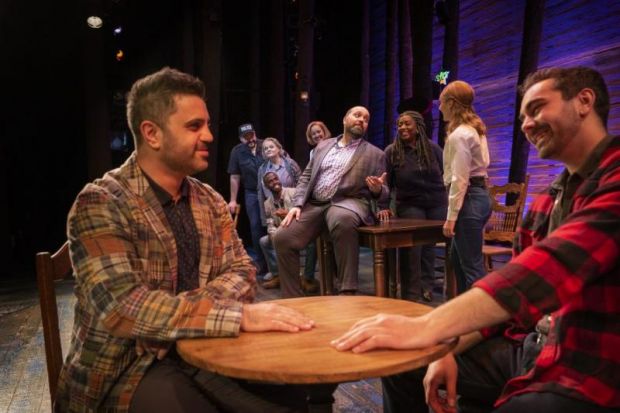
The songs push the narrative along just as much as the spoken word that is smashed between and amidst the sung lyrics – there’s not a wasted word, and each phrase, whether heartfelt, angry, confused, drunk, happy, or sad, is vital to the story. As the drama unfolds, the best songs are ’28 Hours’, telling the many stories across the different flights that were diverted to the airport, and the reprise of ‘Darkness and Trees’ which introduces the challenge of language and the fear of not understanding the words spoken by others. Other standouts are ‘Me and the Sky’, Beverley’s story of how she fought the patriarchy to become America’s first female captain, and then ‘Stop the World’, where Englishman Nick and Texan Diane flirt around the edges of the moment, not wanting to lose it. But the real foot-stomper is ‘Welcome to the Rock’, which opens the show with an energy you have no choice but to ride, and its musical themes then underpin a lot of the other music, until it’s reprised with no less passion in the Finale.
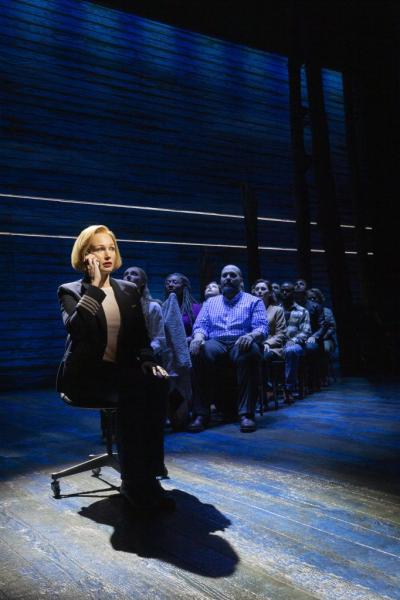
Through those words, spoken and sung, they explore racism, multi-culturalism, sexism, homophobia, motherhood, industrial relations, and all kinds of human relationships. It’s an amazing portrait of clashing ideologies, that hit you hard even when they’re just a few words long. If you were absorbing the news when the terrible events in the US played out twenty-two years ago, some of those words will stir up vivid, life-changing memories. And if you’re too young to remember, this is still a powerful story, these attitudes and beliefs still relevant today, and perhaps depressingly prevalent in 2023.
But most of all, there is hope beaming from the stage: that when life is stripped back to the basics, when you have no choice but to stop – just as we had to do in a pandemic lockdown – there is the opportunity for self-examination and discussions about why you’re doing what you’re doing, and asking why it is important.
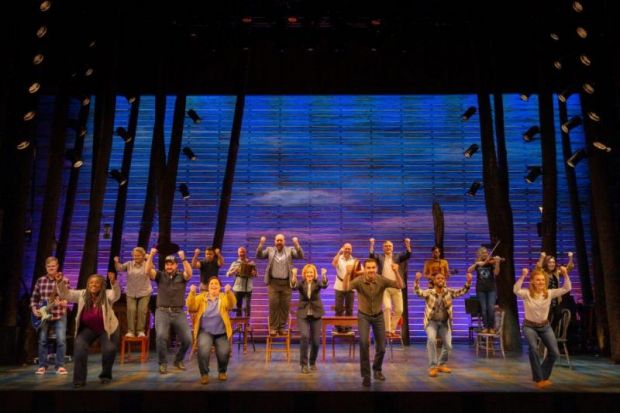
I was fortunate to see the final performance of Come From Away in Melbourne in March 2020, when the world was closing down and no-one had any idea of what was about to happen. The emotions coming out of that performance were still ones of hope and belief that, collectively, we would get through this. Yet the energy from the Adelaide stage on opening night was very different to three years ago – there was no uncertainty, but plenty of possibility. The whole-theatre standing ovation received by the cast, musicians, and crew, was a strong reminder that we all have that inside us – where we’re not just okay, but so much better. Maybe you’ll discover that by yourself; maybe you should see Come From Away to let it out.
Mark Wickett
Subscribe to our E-Newsletter, buy our latest print edition or find a Performing Arts book at Book Nook.

